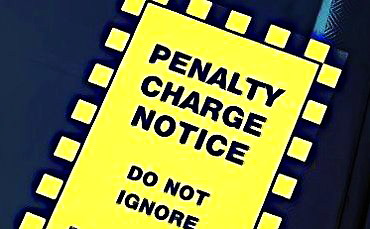Civil Penalties show degree to which government is keen to increase control in the private rented sector.
The introduction of Civil Penalties on Thursday the 6th of April 2017 is a good indication of the strengthening of local authority powers to tackle ‘rogue landlords’ currently taking place. As set out in the Housing and Planning Act 2016, the Government want to make serious movements toward regulating the growing private rented sector.
What is a Civil Penalty?
A civil penalty allows local authority to directly fine the landlord or letting agent in breach of housing law. This means that local authorities will be much more likely to apply fines as it will not be necessary to through the courts, rather, the fines will be applied directly to landlords and agents.
There is a clearly a direct link between HMO regulation and the introduction of civil penalties. This was set out in Housing and Planning Act 2016 and later considered during the government consultation. Of the fineable offences, three out of five are directly linked to non-compliance to HMO regulation.
Civil penalties will be possible for the following offences:
- Offences in relation to the licensing of a House in Multiple Occupation (HMO)
- Offences in relation to selective licensing under part 3 of the Housing Act 2004
- Failure to comply with management regulations for HMOs
- Contravention of an overcrowding notice
- Failure to comply to improvement orders issued by Local Authorities.
Importantly, a landlord or letting agent can incur up to three penalties totaling £30,000 each, with a maximum fine £90,000.
Why the need for civil penalties?
Concurrent with the Government consultation carried out in October 2016, the increased charges have been brought in to act as a greater deterrent against non-compliance of HMO regulation. It was deemed that earlier fines were being costed in as simple running costs for some larger portfolio landlords – and therefore HMO licensing obligations were being neglected.
The growth of the private rented sector has meant that local authorities are lacking control over the rental market. New measures brought in regarding improving standards in the market are hoping to show tenants that government is taking action to improve conditions for private renters.
What does a local authority need to do to impose a civil penalty?
The local authority will need to serve notice to the landlord or agent. This will need to detail the amount of the proposed penalty, the reasons for which it is being issued, and information on how the landlord or agent can contend the fine.
Importantly, the notice must be served within 6 months of the evidence being presented to prove the offence was committed or whilst the offence is on-going. The landlord or agent will then have 28 days to make their defense directly to the local authority. The defense is considered before a final civil penalty is given.
We are still waiting to hear about the landlord database and whether it will introduce a banning order on landlords who have failed to comply. More as we get it…
